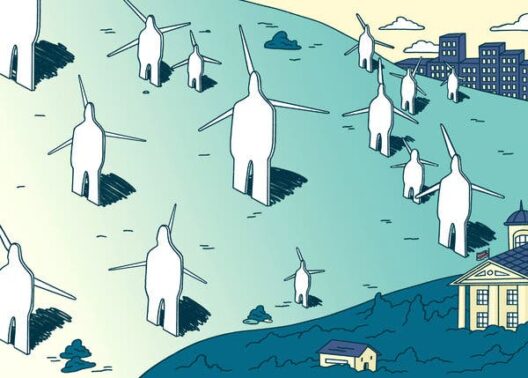Guyana, a small but significant nation nestled on the northeastern coast of South America, finds itself at the crossroads of environmental conservation and economic development. The fierce specter of global warming looms larger than ever, threatening not just the ecological tapestry of this lush land, but the very livelihoods of its people. Yet, within this turmoil lies an opportunity—a green future ripe with promise and resources for both local communities and international stakeholders.
The foundation of Guyana’s green ambitions rests upon its immense biodiversity and the vast expanses of tropical rainforests. These forests, often referred to as the “lungs of the planet,” are not just repositories of carbon dioxide; they harbor countless species and provide essential ecosystem services. As global climate dynamics shift, the importance of conserving these vital ecosystems cannot be overstated. The preservation of Guyana’s lush landscapes represents a formidable bulwark against rising temperatures, floods, and other climate-related calamities.
Temperature rises have already manifested, impacting agricultural yields and altering rainfall patterns. Traditional practices in agriculture are becoming increasingly challenging as erratic weather conditions disrupt planting and harvesting cycles. In rural communities reliant on subsistence farming, the stakes are particularly high. To navigate these changing tides, local farmers are increasingly turning to climate-smart agricultural methods. These innovations include the planting of drought-resistant crops and the implementation of agroforestry practices, which combine forestry and agriculture for mutual benefit. Such shifts not only bolster food security but also enhance the resilience of communities against the vicissitudes of climate change.
In regard to energy production, Guyana’s potential reaches beyond its rich biodiverse landscapes. The discovery of significant oil reserves off its coast has catapulted the nation into the global spotlight. While oil offers immediate economic advantages, it also poses a dual-edged sword. The pivotal question centers around how Guyana will leverage this newfound wealth. A reckless pursuit of fossil fuels may imperil the environment, exacerbating the very challenges that climate change presents. Conversely, harnessing revenues from oil to invest in renewable energy infrastructure could yield long-term sustainability. Initiatives aimed at solar, wind, and hydropower hold promise, ensuring that Guyana can meet its energy needs without forsaking its rich ecological heritage.
Community engagement forms the backbone of any concerted effort toward a greener future. Empowering citizens through education and participation is paramount. Initiatives that prioritize the voices of indigenous communities—who serve as stewards of the land—are essential. Their traditional ecological knowledge offers invaluable insights into sustainable practices that have been honed over generations. Programs aimed at providing training and resources to these communities can cultivate a new generation of environmental advocates who are fully equipped to confront the looming challenges of climate change.
Moreover, the convergence of technology and environmental stewardship is a singular facet of Guyana’s green future. The proliferation of digital tools enables better data collection and analysis, leading to improved monitoring of deforestation and biodiversity loss. Geographic Information Systems (GIS) and remote sensing technologies provide stakeholders with critical insights needed for informed decision-making. These tools facilitate transparent dialogue among governments, NGOs, and local populations, reinforcing a communal approach to conservation.
International cooperation emerges as another integral component of this narrative. Guyana’s commitment to sustainable development is not merely a local endeavor—it is a global responsibility shared among nations. Already engaged in significant partnerships, such as the REDD+ agreement aimed at reducing emissions from deforestation and forest degradation, Guyana exemplifies the potential for collaborative action against climate change. By fostering relationships with other nations and organizations focused on sustainability, Guyana can both draw upon external expertise and contribute to a collective ethos championing environmental integrity.
Guyana’s aspirations toward a green future must also account for the implications of migration and urbanization as climate change progresses. Increasingly frequent and severe weather events contribute to displacement, prompting populations to seek refuge in urban centers. Thus, sustainable urban planning becomes paramount. Cities must adapt to accommodate influxes of people while simultaneously reducing their carbon footprint. Innovations in public transportation, sustainable housing, and green spaces can enhance urban resilience, ensuring that cities not only house growing populations but also thrive as eco-friendly habitats.
The urgency of addressing climate change cannot be diminished. Every fleeting moment holds significance in the broader context of ecological preservation and socio-economic stability. As Guyana boldly navigates the precipice between environmental stewardship and economic opportunity, it serves as a beacon of hope amidst global environmental challenges. The choices made today will reverberate for generations to come, shaping the narratives of countless lives.
In summation, Guyana’s green future rests upon a multifaceted approach that encompasses agricultural innovation, sustainable energy, community engagement, technological advancement, international partnership, and responsible urbanization. By weaving together these diverse threads, the nation can chart a course toward resilience, offering a template for other countries grappling with the realities of global warming. The journey ahead may be fraught with uncertainty, but it is bolstered by an unwavering commitment to protect the land that nurtures its people. Together, in the face of climate change, Guyana stands ready to reclaim its destiny as a custodian of biodiversity and a champion of a sustainable future.







